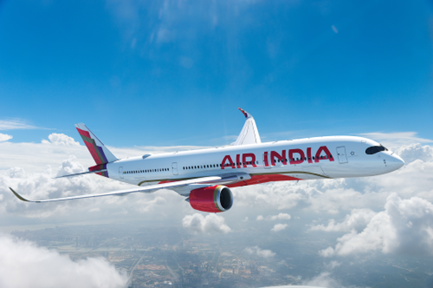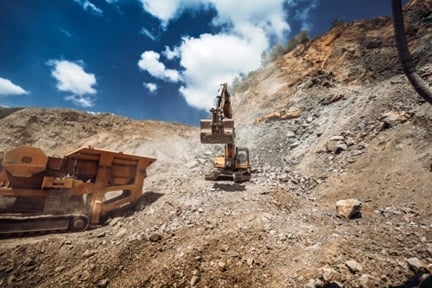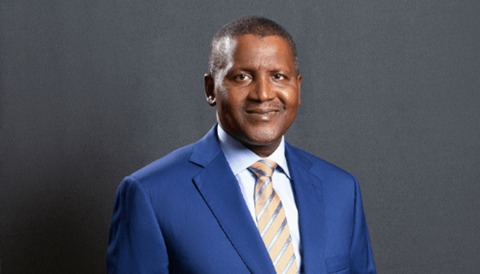Africa takes a big small step towards single market
On 1 Jan 2021, the African Continental Free Trade Area (AfCFTA) became operational. There are many expectations globally on this continental free trade agreement's potential success.
by Johan Burger

In addition to the existing regional economic communities such as the EAC, ECOWAS, COMESA and SADC, we have also seen the Tri-partite Free Trade Area (TFTA). While the smaller regional economic communities have been operating with varying degrees of success, the TFTA, seen as a precursor to the AfCFTA, has had no success at all. To what extent the AfCFTA will succeed, remains to be seen. This report addresses some of the recent developments on the implementation of the AfCFTA.
AfCFTA CRUCIAL FOR RESILIENCE IN AFRICA
The Covid-19 pandemic led to a postponement of the AfCFTA launch from July 2020 to January 1, 2021. Rwanda's President Paul Kagame spoke at the Virtual AfCFTA Business Forum on December 4 2020. Kagame noted that collaborative action to implement the AfCFTA would support rebuilding African economies and strengthen their resilience to future shocks. The success of the AfCFTA is pivotal in driving recovery, building Africa's resilience, and boosting intra-Africa trading. These outcomes will enable Africa to develop its capacity to compete in the global arena.
President Kagame urged countries in Africa to adopt the required frameworks to implement the pact successfully. He also called for involvement by the private sector and society at large, including the youth. Communication about the AfCFTA must continuously address the benefits of free trade within Africa, and work towards mobilising communities to remain engaged for the next phases of African integration. Kagame highlighted E-commerce, as it would allow youth to benefit significantly from the AfCFTA.
The new Secretary-General of the AfCFTA Secretariat is Wamkele Mene from South Africa. The AfCFTA aims to create an African market of 1.27 billion consumers with a cumulative GDP of around US$2.3 to US$3.4 trillion.[1] So far, 54 countries out of 55 have signed the agreement, 34 ratified it, and over 40 submitted their offers.
The launch of the AfCFTA on January 1, 2021 took Africa a big step closer to its vision of an integrated market. It will boost the continent's manufacturing capability and increase exports. According to Wamkele Mene, the AfCFTA "should not just be a trade agreement, it should actually be an instrument for Africa's development." He believes that trading under the auspices of the AfCFTA offers an immense opportunity for Africa to overcome the small size of many national economies and overcome a lack of economies of scale. These steps will put Africa on a path to accelerated industrial development and double intra-African trade by 2035.
The launch also means that cross-border trading amongst African countries will be more comfortable and cheaper, with increased opportunities for thousands of entrepreneurs and businesses on the continent. Investors will be able to transact business on a single set of trade and investment rules across Africa, overcoming market fragmentation that characterised Africa for decades.
According to the African Export-Import Bank (Afreximbank), 400 African banks are on board to provide trade finance support to African businesses. The Bank expects this number to increase to 500 with a combined US$8 billion trade finance capacity in the next 18 months.[2]
POINTS OF INTEREST
- Former CEO of Business Leadership South Africa Bonang Mohale was a guest speaker at the Africa-Singapore Business Forum in Singapore in 2016. During his talk, he referred to Africa's ability to develop excellent plans. However, he viewed the continent's leaders as less good at implementing these plans. The AfCFTA is an excellent idea. Doubling intra-African trade by 2035 is an excellent idea. Streamlining trade and people's movement, goods and services over national borders on the continent will benefit the regional economy.
- Exporting raw commodities and importing value-added goods does not make sense. Having to travel abroad or through a hub in Africa to get to many other countries also makes little sense. We know it is easier and cheaper to trade with countries abroad than with other African countries. All these inefficiencies emphasise our need for the AfCFTA. However, Bonang Mohale’s comments, plus the many known instances of intra-regional strife with regional economic communities such as the EAC and ECOWAS, raise questions about the success potential of the AfCFTA. The intentions are no doubt good. But we all know the road to hell is paved with good intentions. This does not mean that Africa must accept the status quo. It does mean that the continent's leaders must stop their tendency to place their own and national interests above those of the region. For anyone to win, all must win. A trade pact is not a zero-sum game, and Africa's leaders must demonstrate their acceptance of this principle.
RWANDA EYEING AFRICAN EXPORT MARKETS
Rwanda is looking forward to tapping into previously untapped markets and create growth opportunities for its producers and exporters under the auspices of the AfCFTA. The country expects its exports to African markets to grow from the current US$1.6 billion to about US$5 billion in 10 years, a growth of 213%!
They will tap existing and new markets, including Angola, Botswana, Congo Brazzaville, the DRC, Ghana, Namibia, Nigeria, Senegal, South Africa and Zambia, as well as other niche markets. Products identified for export purposes include agro-processed goods, construction materials, ICT and financial services.
The increase of destinations served by the national carrier RwandAir on the African Continent is further expected to enable Rwandan exporters to reach target markets with ease. E-commerce is identified as a critical driver of access to the continental market.
In addition to tapping into new and expanded export opportunities, the AfCFTA will facilitate imports of raw materials for textile and other industries for value addition and exports. The AfCFTA could see Rwanda reduce its import bill.
Rwanda's producers believe they can successfully exploit opportunities in Africa's market based on their recent performance in agriculture exports. In 2019/20, Rwanda exported 31,788 tons of horticulture commodities.[3]
POINT OF INTEREST
- A small country such as Rwanda (population of 12 million and GDP of US$10 billion) has positioned itself for years to tap all the potential opportunities coming its way. In addition to expanding its trade links created by the AfCFTA, it has developed other possibilities, such as with Alibaba that provides its businesspeople, farmers and tourist organisations with access to China's vast markets. The country has also been developing itself as a digital hub in East Africa. These actions complement ongoing reforms to improve its position on the World Bank's Ease of Doing Business rankings, on which it currently ranks Number 2 in Africa.
BOOSTING CEMENT PRODUCTION IN AFRICA UNDER THE AfCFTA
Aliko Dangote expects the Dangote Industries cement expansion plan and fertiliser investments to open new trade routes for the company under the AfCFTA. Dangote's Nigerian cement subsidiary currently has an installed capacity of 29.3 million tons per annum. The firm plans capacity expansion in Nigeria and Cameroun, with new plants soon to be commissioned in Benin, Cote d'Ivoire, Ghana, Niger and Togo. As Dangote does not view servicing Africa's cement needs from Nigeria as a viable solution, its strategy is to decentralise cement production throughout Africa. High transport costs and pollution by large trucks are two factors mitigating against centralisation.
Dangote believes Africa will adopt a strategy that boosts per capita consumption of cement. This approach will support the continent's infrastructure development, force cost reductions and stimulate demand for cement. UNCTAD support for addressing the infrastructure deficit through successful implementation of the AfCFTA aligns to Dangote's intent to address this deficit through his cement investment in Africa.
The lifting of restrictions in many African economies under the AfCFTA will potentially boost the performance and earnings of the Dangote Group.
Dangote's desire to make Africa self-sufficient in cement production led to the signing of a US$4.34 billion contract for the construction of 11 new cement plants in 10 African countries plus Nepal, with Chinese construction giant Sinoma International Engineering Company Limited.[4]
POINT OF INTEREST
- Dangote Industries is a giant on the African continent. Corporates of this size can take advantage of scale in their expansion efforts throughout Africa. While the AfCFTA will undoubtedly ease their growth strategies, concerns must exist in the minds of SMEs and even smaller corporates about their ability to protect themselves competitively against the likes of a Dangote. On the other hand, protectionist policies will deny the continent the real benefits of the AfCFTA. This is the kind of dilemma the continent will soon face, in addition to that of large economies flexing their muscles against smaller economies. Nigeria's actions against Ghana and its other neighbours when it closed its borders were ostensibly taken to safeguard its commercial sectors against smuggling and dumping. The members of the East African Community are often at loggerheads. The threat of dispute resolution protocols in the AfCFTA is only as real a deterrent as the willingness of those countries and companies involved to abide with the sanctions levied against them. Africa has all too frequently seen REC-members doing exactly as they please despite potential sanctions. Whether this mental model will change with the AfCFTA in place remains to be seen.
ETHIOPIAN VIEWS ON THE AfCFTA
'Merkato', Ethiopia's largest open market, offers many products imported from China, India, Italy, Malaysia, and Singapore. Trade regulations and tariffs made intra-African commerce costly, inefficient and cumbersome. Consumers now hope that "made in Africa" products will be more readily available following the launch of the AfCFTA on January 1 2021.
Special advisor to the Ethiopian Prime Minister Dr Arkebe Oqubay recently stated that "the new electric-powered Ethio-Djibouti Railway is an example of the journey of economic integration and the commitment for AfCFTA, aside from illustrating Africa's commitment to a green path and economic transformation." He reiterated that environmental sustainability and economic growth are complementary.
According to Musse Mindaye, Multilateral Trade Deal and Relations Director with the Ministry of Trade, the AfCFTA will liberalise trade in services. The AfCFTA may in future enable free movement of people and a single currency. He believes that the AfCFTA will assist African countries like Ethiopia to attract potential investors with the capacity to create employment opportunities. It will "provide a chance to prevent trade conflicts beforehand," while consumers will be able to buy products at discounted prices. The government would also benefit from tax revenues and jobs created for its citizens.[5]
AfCFTA GOVERNANCE SAFEGUARDING AGAINST BULLYING OF SMALLER ECONOMIES
Some trade experts in Ghana criticised Nigeria for its “bullying attitude” that led to the closure of its land borders from August 2019 till December 2020. These experts cautioned that the AfCFTA would not condone this behaviour. While Ghana empathised with Nigeria's reasoning to safeguard its market and people, it disagreed with closing its borders. They saw closing Nigeria's border as flexing its muscles as the regional superpower, acting like the big brothers of West Africa that can do whatever they want. They believed Nigeria's actions had a detrimental effect on the economies of the 14 member states of ECOWAS and that it was unfortunate that compensation had not been an issue.
According to Former Deputy Minister of Trade and Industry of Ghana Carlos Ahenkorah, the AfCFTA will fill the loopholes exposed in the ECOWAS Trade Liberalization Scheme and not condone such practices following its implementation. The ECOWAS protocols appeared as "a gentleman's agreement by the heads of states," and lacked dispute resolution mechanisms. The AfCFTA protocols corrected this oversight.
Nana Osei Bonsu, CEO of the Private Enterprise Federation of Ghana, corroborated this view and emphasised that the conflict resolution mechanisms embedded in the AfCFTA protocols will provide little opportunity for trade injustices to grow. All actions will now be subject to the rules of the AfCFTA, which provides for dispute resolution.
Due to the comprehensive nature of the AfCFTA constitution, it will not allow more powerful nations to make selfish decisions against other member states contrary to the provisions allowed in the AfCFTA protocols.[6]
POINT OF INTEREST
- Attracting investors to Africa requires more than high returns. Africa must address its security challenges. The Central African Republic, the DRC, Ethiopia, Libya, Mozambique, Nigeria and Somalia are unfortunately examples of problematic security situations, to put it mildly. While the AfCFTA addresses Africa's economic and social well-being across many fronts, it does not address military security or other safety issues. Without resolving these, the investments needed for increased trade and development will not materialise.
Additional Readings
Anon. 2021. Dangote Cement explores new trade routes under AfCFTA. The Guardian. January 12 2021. Available at https://guardian.ng/business-services/dangote-cement-explores-new-trade-routes-under-afcfta/. Accessed January 23 2021.
Bizimungu, J. 2021. Kagame hails launch of trading under AfCFTA. The New Times. January 1 2021. Available at https://www.newtimes.co.rw/news/kagame-hails-launch-trading-under-afcfta. Accessed January 23 2021.
Gashaw, G. 2021. Ethiopia: AfCFTA stepping stone to continental prosperity. AllAfrica. January 8 2021. Available at https://allafrica.com/stories/202101080477.html?aa_source=nwsltr-business-en. Accessed January 23 2021.
Mwai, C. 2021. ACFTA: What are the top markets Rwandan producers are eyeing? The New Times. January 15 2021. Available at https://www.newtimes.co.rw/news/acfta-what-are-top-markets-rwandan-producers-are-eyeing. Accessed January 23 2021.
Mwai, C. 2020. Kagame: AfCFTA will rebuild economies and foster resilience. The New Times. December 4 2020. Available at https://www.newtimes.co.rw/news/kagame-afcfta-will-rebuild-economies-and-foster-resilience. Accessed January 23 2021.
PH. AfCFTA would not condone bullying by 'so-called bigger nations' – Carlos Ahenkorah. How Africa. December 2020. Available at https://howafrica.com/afcfta-would-not-condone-bullying-by-so-called-bigger-nations-carlos-ahenkorah/?utm_source=feedburner&utm_medium=email&utm_campaign=Feed%3A+howafrica+%28How+Africa+and+More%29. Accessed January 23 2021.
References
[1] https://www.newtimes.co.rw/news/kagame-afcfta-will-rebuild-economies-and-foster-resilience














/enri-thumbnails/careeropportunities1f0caf1c-a12d-479c-be7c-3c04e085c617.tmb-mega-menu.jpg?Culture=en&sfvrsn=d7261e3b_1)

/cradle-thumbnails/research-capabilities1516d0ba63aa44f0b4ee77a8c05263b2.tmb-mega-menu.jpg?Culture=en&sfvrsn=1bc94f8_1)







